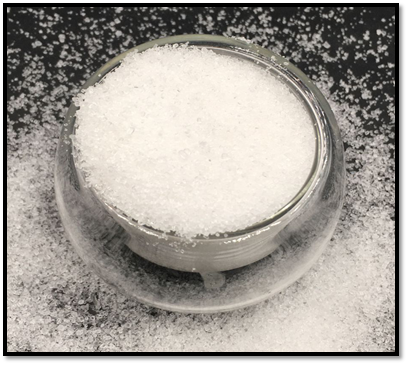Description
Ammonium sulfate, a seemingly simple chemical compound, plays a remarkably significant role in diverse applications – most notably in agriculture, but also reaching into industries and even laboratories. This white, crystalline salt, easily soluble in water, is a workhorse, often performing its duties quietly behind the scenes. Let’s dive into what makes ammonium sulfate so essential and versatile.
The Chemical Backbone: What is Ammonium Sulfate?
Ammonium sulfate, with the chemical formula (NH₄)₂SO₄, is an inorganic salt formed by the reaction of ammonia (NH₃) with sulfuric acid (H₂SO₄). This combination results in a stable crystalline structure that is readily dissolved in water. It’s this solubility that makes it so easy to use in various applications.
The Agricultural Powerhouse: A Key Fertilizer
The most significant application of ammonium sulfate lies in agriculture. It acts as a crucial fertilizer, providing two key nutrients for plant growth:
Nitrogen: (H₂SO₄) releases nitrogen in the form of ammonium (NH₄⁺), which is a readily available form for plants to absorb. Nitrogen is essential for chlorophyll formation (responsible for photosynthesis), leaf growth, and overall plant development.
Sulfur: Alongside nitrogen, ammonium sulfate also provides sulfur, a secondary nutrient critical for protein synthesis, enzyme function, and overall plant health. Sulfur deficiency can lead to poor plant growth and reduced yields.
Ammonium sulfate is particularly favored for use in alkaline soils where it helps to lower the pH, making other nutrients more accessible to plants. It is also a popular choice for crops that have a higher sulfur requirement. It’s commonly used for crops like cereals, fruits, vegetables, and pastures, contributing to higher and healthier yields worldwide.
Beyond the Fields: Diverse Industrial Applications
The utility of (H₂SO₄) extends beyond agriculture, finding its place in various industrial processes:
Water Treatment: It’s used as a flocculant in water purification plants. It helps to clump together impurities, making them easier to filter out.
Flame Retardant: Ammonium sulfate also plays a role in fire safety. It is used as a flame retardant in certain materials, slowing down the spread of fire.
Pharmaceuticals: It’s utilized as a protein purification agent in the production of some pharmaceuticals.
Food Industry: While not used as an ingredient directly, it acts as a yeast nutrient for fermentation processes in the production of some foods and beverages.
In the Lab: The Researcher’s Tool
In research and laboratory settings, (H₂SO₄) plays a particularly important role in protein purification. The process, known as “salting out,” involves using high concentrations of ammonium sulfate to selectively precipitate proteins out of a solution, allowing researchers to isolate and study specific proteins.
Safety and Handling
While generally regarded as low in toxicity, ammonium sulfate should be handled with care. It is advisable to wear protective clothing, goggles, and gloves during its use. Inhaling dust or prolonged skin contact can cause irritation.
The Future of Ammonium Sulfate
While readily available and widely used, the production of ammonium sulfate is often linked to the production of other chemicals like caprolactam (used in making nylon). As industries evolve, we may see shifts in production methods. However, considering its essential role in agriculture and other varied industrial applications, ammonium sulfate’s significance is unlikely to diminish anytime soon. It remains a crucial chemical, quietly underpinning much of modern agriculture and industry.
Conclusion
Ammonium sulfate, a simple compound, is far more versatile than its unassuming appearance suggests. From boosting crop yields to purifying water and aiding in scientific research, this chemical proves to be an invaluable workhorse, subtly contributing to a multitude of processes that impact our daily lives. Its continued importance is likely to secure its position as a cornerstone in both agriculture and other industrial sectors for years to come.



Reviews
There are no reviews yet.